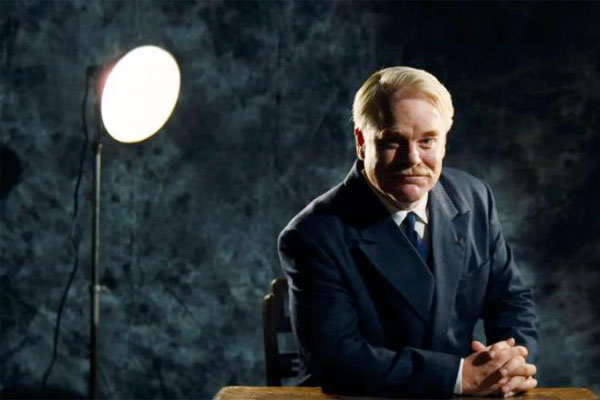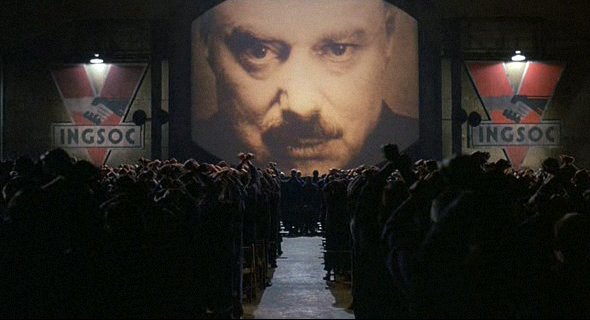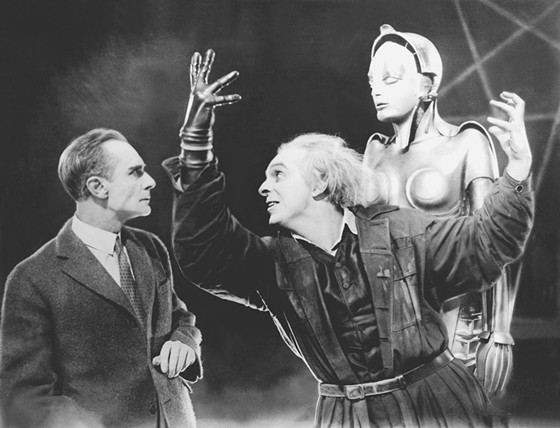
Rare is a film not multi-layered, cinema is often utilized as a window into society, culture, philosophy and theology. Directors and writers push their passions and views into the projects they conduct, sometimes this is left as a subtle message, however some of these thoughts become the focal point of the film, lending these ideas to the overall integrity and strength of the film.
When a film becomes an allegory, this deeper meaning becomes the integral part of the film, films like this are often surreal or metaphorical whilst films that incorporate an allegorical meaning but avoid it taking over the film tend to be far more grounded in reality and realism. Both styles of message are potent and brimming with endless amounts of depth to explore.
1. 1984 (Michael Radford, 1985)

The ultimate example of an allegorical film, 1984 is an adaptation of George Orwell’s novel of the same name and tells the story of Winston Smith (played excellently John Hurt) as he goes through his oppressive and confined life within a dystopian world of which “Big Brother is always watching”.
The film’s allegory is not subtle, Orwell constructed 1984 to represent a fully realised Marxist vision of communism and the ‘Red tide of communism’ was a particularly dominant fear at the time of the novels construction. Winston’s life is soulless, compassion is forbidden and real emotion is labelled “thought crime” with only a small- highly illegal journal about his personal life as an example of individuality.
Winston’s job in itself exposes the major issue of censorship and misinformation as he is one of many employees at the ironically titled ‘Ministry of Truth’ whom changes history, dates and people to fit in with Big Brothers version. Marx’s primary criticism was the ever-dominant force of censorship and the current outcrop of communist china at the time. Marx uses the narrative to explore an alternate future for if all the world became overwhelmed by the censored and restricted life China began experiencing in his time.
However, Winston Smith’s quiet and unintentional rebellion becomes something of far dire consequence when he and his co-worker Julia (Suzanne Hamilton) begin an affair of the body and mind: exchanging their higher order beliefs and desire as well as questioning the society they live in whilst making love in seclusion from the Thought Police.
After their affair is discovered, both are subjected to a series of both terrifying and intelligent ‘rehabilitation’ techniques in the Ministry of Love (although its objective is to recreate the dispassionate and thoughtless way of life previously experienced). The result being of course that Big brother wins, the couple address each other following their processing without the emotion and interest they had when enamoured with one-another.
The fear of global war is surfaced, with the continent being broadcasted a recent invasion into a rival country. Meanwhile, propaganda seeps into the minds of the citizens with the reminders not to think, not to feel and a reestablishment of perfect unchangeable equality between its lower citizens (as was the idea of Marxism’s, a concept George Orwell picked to shreds in his life).
The film ends with a reminder that Big Brother is watching and as Winston whispers “I love you”, viewers wonder if that was Michael Radford stating that free will and love could never be controlled, or was Winston stating his love for Big Brother and that oppression did finally overcome individuality?
2. Metropolis (Fritz Lang, 1927)

Metropolis is a landmark film in cinema, not just in German cinema but in film as a whole. A classic German surrealist picture whom many Australian students may be familiar with as a studied text in year 12. Metropolis represents a futuristic dystopia conveying the still relevant issues of man vs machine and class struggle. The film’s protagonists Maria and Freder struggle against the overwhelming alienation from one another due to class separations.
Freder (Gustav Frolich) is the son of the city’s master and is interrupted in the upper class garden by a poor working class citizen Maria (Brigitte Helm) whom had brought children to the richer district to show them the life of the aristocrats. Although she is taken away, Freder’s curiosity led him to follow her and begin an illicit friendship with the girl.
As the film continues, Lang’s fear that society is over-indulgent in our use of machinery as well as his criticism of social class becomes the centrepiece of a film, one would think might have taken it in a direction more resemblant of a dystopian romance.
The city is wide spread with chaos as the upper class digs in its hooks to maintain class division whilst Freder desperately tries to unite the two forming a mediation between the working class and aristocratic upper class. The film’s clear industrial revolution message is well established in this pinnacle of world cinema and unique intuitive narrative.
3. Fight Club (David Fincher, 1999)

Neo-noir film David Fincher master took a step back from his hit crime thriller Se7en to deliver a surprisingly brilliant satirical drama based on Chuck Palahniuk’s novel by the same name. Fight Club follows the story of materialistic depressed insomniac known as the Narrator (Edward Norton). The Narrator lives a content, product filled life and spends his down time ordering expensive furniture from catalogues to further complete his life.
After meeting Tyler Durden (Brad Pitt’s slickest performance to date) upon a flight, a turbulent friendship and club is established. The film doesn’t just boast an iconic and unexpected plot twist as it is a masterfully directed mocking of contemporary society’s reliance and perpetual emphasis upon a materialistic way of life.
Fincher shows his viewers just how “stupid and pointless” their existence is as we buy products based on brands and live solely to consume. He highlights how much power brands have over society with the Narrator noting dryly that planets with be named after companies “Planet Starbucks” namely and uses the film to push the need for people to reduce the power of business on everyday life, fearing that the 80’s materialism had carried onto the 90’s and beyond.
Tyler Durden is essentially the man all other men aspire to be: cool, muscular, knowledgeable and charismatic, viewers watch perplexed as Durden weaves a chaotic connection between mid-life crisis men across the USA. At first, this takes place as a club where men fight one another, but later into Project Anarchy whereupon Durden declares war on marketed America with a series of increasingly extreme terrorist attacks.
Each character is colourful, amusing and a bitter satire of the people society preys upon for commercialistic success. Bob ‘Bitch-tits’ (Meatloaf) is an overweight and depressed man with confidence issues whom cries at men’s testicular cancer support groups. Marla (Helena Bonham Carter) is a vice-riddled and suicidal love interest to the Narrator/Tyler Durden whom refuses to blend with society instead preferring to drink herself to death and point out ironically the ridiculously of the entire system.
Fight Club tells its viewers to stop giving into materialism whilst also mockingly revealing the zombification of the white collar worker. It is a quirky but unfortunately can be too engrossing a film for many to understand its statement against society, but Fincher managed to have men start beating each other up as an organised club statement which I suppose could also be considered a success.
4. Spirited Away (Hayao Miyazaki, 2001)

A beautiful film which featured prominently in many people’s early lives, Spirited Away follows a girl Chihiro (Rumi Hiiragi) whose parents are promptly transformed into swine after ‘pigging out’ on the food of spirits. Although a children’s film, there is a far darker meaning behind its entirety as Miyazaki disclosed, the film is an allegory for the Japanese Sex industry, primarily that of child sex slaves.
Following her parent’s transformation, Chihiro is taken to work in a bathhouse (this is representative of a brothel) whereupon she works for the corrupt mistress Yubaba whose name directly translated to the name given to those operating brothels in the Edo period (that which the worlds architecture originates from).
Chihiro signs a contract declaring herself the property of Yubaba and changes her name, something significantly more sinister with the knowledge previously disclosed in mind and proceeds to go about bathing the rich and wealthy patrons. Although she is never explicitly requisitioned for sex, the character No-face; a rich and influential spirit frequently offers her large sums of money for something unidentified which Miyazaki also confirmed to be an offer for sex.
Although in the end Chihiro undergoes a quest to rescue her parents along with her escort No-face and the story becomes significantly more pleasant, it is suggested on a high note that by rediscovering her parents, Chihiro’s innocence is restored but the greater meaning behind the film lingers upon reviewal.
5. A Clockwork Orange (Stanley Kubrick, 1971)

This classic Kubrick adaptation of Anthony Burgess’s notorious novel mirrors its tale of an aggressive and sadistic teen living in a dystopia whose rules, order and society are unclear, but Alex’s tendencies for violence certainly are not. In Kubrick’s interpretation, he observes that Burgess was using his writing to represent the growing importance of violence in youth culture, presenting Alex (Malcolm Mcdowell) as the epitome of all that was wrong with this culture.
Alex’s tenure of violence follows an iconic opening sequence as he bashes, beats and sexually assaults to a contrastingly beautiful Beethoven, always shocking viewers, one can only imagine the discomfort of viewers upon the film’s release.
Following his imprisonment, Alex becomes desperate to re-enter the world as his life in prison is not a pleasant one (hints of sexual abuse and dabbled in) and Alex signs up for the experimental Ludovico Technique. When his ‘rehabilitation’ has concluded, Alex is set free and he is hit blow by blow by blow as he can no longer indulge in what gave him pleasure, suffering on the other end instead.
But the film concludes with its titular anti-hero being praised as a victim as Kubrick points out the horrible way in which society covers up its mistakes and embraces without a fight what it cannot control. The violence prevails, Alex wins a bittersweet victory, the government jumps on their opportunity to look good despite the immorality and Kubrick places another landmark in cinema history.